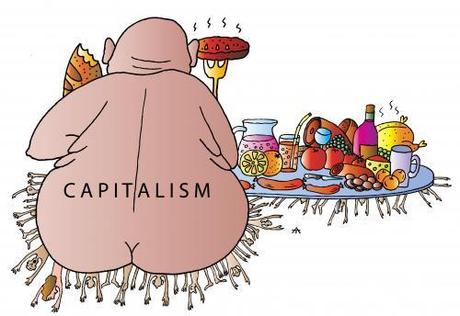Two articles appeared recently in the Washington Post that deserve rebuttals as to their slanted positions on certain issues. The first is an op-ed by Robert J. Samuelson titled “The End of Entitlement”. He argues we have reached a point where we are no longer entitled to the things in life we previously believed we deserved if we worked hard for them, such as a peace of mind about job security and retirement. He sums the idea up in one sentence:
We’re not entitled to many things: not to a dynamic economy; not to secure jobs; not to homeownership; not to ever-more protective government; not to fixed tax burdens; not to a college education.
It’s not that he is wrong about this current reality of life. It’s that his attempt at trying to decipher why this is the now case is weak and misleading.
He gives four points that we assumed would work but failed us. The first:
economists knew enough to moderate the business cycle, guaranteeing jobs for most people who wanted them…The Great Recession revealed the limits of economic management. (Emphasis added.)
Working as intended!
This is an incredibly misleading statement. If the Great Recession revealed anything it was that there was (and is) far too little oversight of the financial sector and, when it is allowed to run wild and commit fraud without consequences to the people committing the crimes, most of us get hurt in the end. This isn’t to suggest a communistic approach to the economy but a check and balance on the financial sector’s power (similar to our system of government’s checks on each branch) is clearly what was missing in the housing sector and the derivatives market and what got us to where we are now.
And before anyone tries to make the case Fannie Mae and Freddie Mac were government-run programs that were policing the industry, they were not. Here’s how you figure that out. If it has a person called its CEO, kind of like Freddie and Fannie, it’s not government run. Period. They made their decisions without enough oversight and they screwed us in the interest of making a short term profit with painful long term consequences, just like other corporations.
His second point is that the “safety net” provided by large corporations has “shrunk” and does not provide what they once promised. One of the factors he strangely blames considering his first point: “deregulation”. In other words, economists failed at “managing” the economy but the economy failed because of deregulation. Samuelson counters himself here and apparently doesn’t notice it. If deregulation occurs at a level where it becomes problematic, then economists and the government are not actually “managing” anything. They are just observing what is happening without intervening where needed, which is what caused the crash.
His third point is that productivity gains did not translate into expected tax receipts and greater income inequality has compounded the problem of paying for government programs. This ignores two important factors causing this outcome. One, that the attack by the right on workers rights and unions has led to lower wage growth and more money going to the top earners, which is not in any way regulated but could be as Europe is doing. Two, that tax cuts, such as the Bush era cuts that went heavily to the top earners who are earning more of the money, have made tax revenues lower than previously expected when these programs were created. In other words, it was a boosting of right wing economic legislation that made this problem what it is now.
His last point is that broken families and children raised by single parents have helped take away the idea of entitlement. This idea is so ludicrous it’s hardly worth addressing. In other words, his argument is that a child in a household with two parents that fight all the time (or worse) and no longer want to be together is healthier for the child. Argue away on that point. Also, this ignores the fact stagnant wages have led to more hours worked for less pay which will have an obvious effect on the parent rearing the child, whether single or not.
The other article in the Post was a piece by Zachary Goldfarb about “liberals” (as if the government is filled with them) now dealing with the fact the defense cuts they called for are hurting the economy. The article focuses on military spending and is presented as if there is virtually no other alternative in how the government could use its funds. This suggests liberals only want cuts in defense spending and do not want the money diverted to shore up or improve other programs, such as Social Security or education.
He does spend some time on the idea money could go toward other expenditures. 2 whole paragraphs…out of 27. If this article was even a remote presentation of more liberal beliefs about where the government could spend its money, it would give far more time to this aspect and show how the defense budget dwarfs other areas that could produce jobs and help the economy like infrastructure and education. Pointing out that the federal defense budget is roughly $850 billion while federal education spending is just below $100 billion would be a start.


